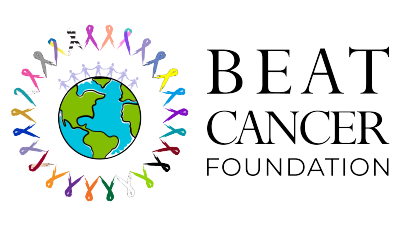
The Sugar-Cancer Nexus: Unraveling the Facts

The Sugar-Cancer Nexus: Unraveling the Facts
The intricate relationship between sugar consumption and cancer has been under the lens for years. Accumulating evidence is now painting an irrefutable picture - that sugar consumption has a direct bearing on both cancer risk and progression. This complex interplay also manifests indirectly through damage to the immune system and fluctuations in insulin levels.
In this feature, we delve into the latest research findings that further elucidate the link between sugar and cancer. Our analysis provides a comprehensive view of the burgeoning body of evidence underscoring the sugar-cancer nexus.
The Role of Sugar in Cancer Formation, Progression, and Survival
Contrary to the persistent myth, "sugar doesn't feed cancer cells", a wealth of research negates this misconception. The bitter truth is that cancer cells are reliant on sugar for their formation, survival, and proliferation. These cells boast a higher number of insulin receptors, which enhance sugar uptake and fuel their unbridled growth. Therefore, curbing empty calories and minimizing added sugar consumption emerge as pivotal strategies in our battle against cancer.
Cracking the Sugar-Cancer Code: Key Research Insights
1. A study by Onodera et al. (2014) illustrates how increased glucose uptake spurs cancer via two distinct pathways. This is further corroborated by the Mayo Clinic, which associates high sugar consumption with an elevated risk of certain cancers.
2. Dr. Craig Thompson's findings suggest that the AKT gene plays a role in determining the nutrient intake of cancer cells, with a particular predilection for glucose. Dr. Chi Van Dang emphasizes that cancer cells are "addicted to nutrients" like glucose and face extinction without it.
3. Dr. Lewis Cantley's research divulges that daily consumption of a fizzy drink equivalent significantly fuels the growth of colorectal cancer tumors. This is credited to the activation of the PI3K gene by insulin, which ferries sugar from the bloodstream to cancer cells.
4. A team led by Johan Thevelein unveiled that a sugar derivative (fructose-1,6-bisphosphate) directly activates the ras gene, leading to aggressive, unrestrained cellular proliferation in cancer, thereby setting off a vicious cycle.
5. Research from Johns Hopkins advocates for sugar deprivation to enhance survival, highlighting two genes that spur cancer growth even amidst the failure of healthy cells. Poor sugar control has been consistently associated with cancer, and individuals with type-2 diabetes face a higher risk of colorectal cancer.
6. A 2013 study by the University of Minnesota revealed that post-menopausal women who regularly consumed soda had an elevated risk of type 1 endometrial cancer, irrespective of obesity-related concerns.
7. High blood sugar levels are synonymous with a higher cancer risk and reduced survival, whereas lower blood sugar levels correspond with enhanced survival (Sebastian GA et al, 1985).
8. University College, London pioneered an MRI technique (glucoCEST) that pinpoints tumors based on their high sugar consumption, reinforcing the sugar-cancer link.
9. Elena S. Reckzeh’s groundbreaking research demonstrated that by inhibiting glucose uptake using Glutor and a glutamate inhibitor (CB-839), cancer growth was effectively stalled without impacting healthy cells.
10. Multiple studies have demonstrated that impeding glucose uptake effectively halts cancer cell development. One such study leveraged a sugar extract from avocados (mannoheptulose) to significantly shrink tumor size in laboratory animals.
11. Cancer cells, with their abundance of glucose receptors, can deprive healthy neighboring cells of sugar. They can even manipulate serotonin to decrease insulin levels and increase glucose availability in the bloodstream, thereby ensuring their own proliferation.
12. The relationship between glucose and cancer risk isn't linear, as some cancers show a higher dependency on glucose. The enzyme GAPDH modulates glucose metabolism in cancer cells, and inflammation reduction can aid in limiting cancer spread.
13. High Fructose Corn Syrup (HFCS), a common constituent in soft drinks, is proven by Dr. Anthony Hearney's research to be more detrimental than glucose in fostering cancer cell growth.
14. Consuming sugary beverages can debilitate the immune system's ability to combat cancer cells. Elevated sugar levels can impede immune cell function, thereby increasing the body's vulnerability to cancer propagation.
15. A study published in JAMA Internal Medicine observed that individuals with the highest consumption of added sugar faced a substantially greater risk of death from cardiovascular disease, which is intricately associated with increased cancer risk.
16. A 2020 Nature Communications study correlated high sugar intake with the growth and lung metastasis of breast cancer tumors.
17. A 2016 study in Cancer Research found a positive association between sugar intake and an increased risk of lung cancer, especially among non-smokers.
18. A meta-analysis in the British Journal of Cancer concluded that higher consumption of sugar-sweetened beverages was tied to an elevated risk of pancreatic cancer.
In Conclusion
The link between sugar and cancer is not mere conjecture but a reality substantiated by an expanding body of research. A proactive approach to mitigating cancer risk involves reducing added sugar intake, adhering to a balanced diet, and engaging in regular exercise. Remember, not all sugars are villains. Natural sugars present in fruits and vegetables are crucial to maintaining dietary equilibrium. Stay mindful of your sugar consumption, prioritize whole foods, and pave the way for optimal health and cancer prevention.
“Knowing all your treatment options could be life-saving!”
Location
Sheridan, WyomingTogether, we can beat cancer
Thank you for your interest in the Beat Cancer Foundation. We are here to support you every step of the way in your cancer treatment journey. Please fill out the form below, and our team will be in touch with you shortly. Together, we can beat cancer. (307) 291-0991

